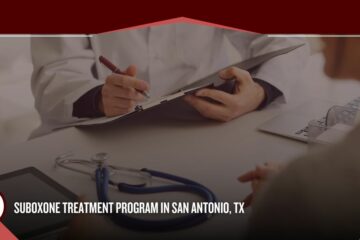When it comes to overcoming addiction and maintaining long-term sobriety, many factors come into play, and one often overlooked aspect is nutrition. Proper nutrition in addiction recovery is crucial for fueling the body, replenishing depleted nutrients, and supporting overall well-being. It goes hand in hand with the physical, mental, and emotional healing process. By adopting a balanced and nourishing diet, individuals can combat the physical effects of addiction, enhance their mental health, and cultivate self-reliance. This is the principle that has allowed our Texas behavioral health center to stand proud among our peers and the one we strongly focus on to inform holistic therapeutic approaches. We explore the profound impact of proper nutrition on addiction recovery, providing insights and practical tips for incorporating healthy eating habits into your journey toward a fulfilling and sustainable recovery.
Combatting the Physical Effects of Substance Use through Proper Nutrition in Addiction Recovery
Addiction can take a severe toll on the body, leaving it depleted and weakened. Substance abuse often leads to poor dietary choices, neglecting essential nutrients, and disrupting the body’s natural balance.

For a few examples, consider the following:
- Heroin addiction: One of the common effects of heroin use is a suppressed appetite, leading to decreased hunger and a diminished desire to eat. Furthermore, the negative impact of heroin on the brain’s reward system can contribute to an altered perception of pleasure, making unhealthy food choices more appealing and reinforcing unhealthy eating habits.
- Marijuana addiction: The use of marijuana can stimulate the appetite, leading to increased hunger and cravings for food. This effect is often dubbed “the munchies” and is a common symptom that marijuana detox Texas programs have to account for. Individuals addicted to marijuana may experience intense cravings for high-calorie and indulgent foods, particularly those that are sweet, salty, or savory.
- Cocaine addiction: One of the immediate effects of cocaine use is a significant decrease in appetite, often leading to a loss of interest in food and decreased consumption. The stimulant properties of cocaine suppress the appetite and can result in individuals neglecting their nutritional needs, leading to weight loss and malnutrition.
As you can see, proper nutrition in addiction recovery plays a pivotal role in physical healing and restoration. By adopting a nourishing diet, individuals provide their bodies with the essential building blocks they need to repair and recover. With proper nutrition, individuals in addiction recovery can actively combat the physical effects of addiction and set the stage for a healthier, more vibrant life ahead.

The Impact of Proper Nutrition on Mental Health and Well-being
Beyond physical health, substance use and the ensuing malnutrition also play a significant role in mental health and overall well-being. Indeed, there is a strong connection between nutrition and mental health, as what we consume directly impacts brain function and neurotransmitter production. This is particularly substantive for substances that directly interact with neurotransmitters, such as meth, but the principle applies far beyond meth detox Texas programs exclusively.
Therefore, adopting a balanced diet can stabilize mood and reduce anxiety, both of which are crucial for individuals in recovery. Balanced diets rich in whole foods, such as fruits, vegetables, whole grains, and lean proteins, provide essential nutrients that support brain health and emotional well-being. For instance, omega-3 fatty acids found in fatty fish like salmon and nuts like walnuts have been linked to improved mental health and reduced symptoms of depression and anxiety.
B vitamins, particularly folate and B12, also play a vital role in synthesizing neurotransmitters like serotonin, which contributes to feelings of happiness and well-being. Additionally, adequate intake of minerals like magnesium and zinc has been associated with lower levels of stress and anxiety. As such, proper nutrition in addiction recovery can have truly immense benefits for the individual.
Nutrition and Mental Health: Dual Diagnosis
A key reason why the above is so crucial to note comes in dual diagnosis. The phenomenon of dual diagnosis, where individuals experience both addiction and mental health disorders, must be considered in this context.
This phenomenon is, unfortunately, rather common. NIDA finds that almost 38% of those with substance use disorders also have mental health disorders, and over 18% of those with mental illnesses also have substance use disorders.

Beyond its frequency, one crucial aspect of dual diagnosis that often goes unnoticed is the connection between mental health and malnutrition. Many individuals with mental health disorders struggle with poor eating habits, leading to nutrient deficiencies and imbalances. Addressing this issue is essential in promoting holistic recovery. Balanced diets play a significant role in dual diagnosis treatment, as they provide the necessary nutrients to support mental health and stabilize mood – as highlighted above.
By incorporating balanced diets into dual diagnosis treatment, healthcare professionals can address the nutritional needs of individuals, optimizing their mental health outcomes and fostering a comprehensive approach to recovery. If you or your loved ones seek the services of a dual diagnosis treatment center Texas offers, this criterion should be on your mind.
Cultivating Self-Reliance through a Consistent Nutrition Plan
On the subject of proper nutrition in recovery, consistency in nutrition is of utmost importance. Put differently, consistency is in itself a benefit beyond those of proper nutrition.
By establishing and maintaining a consistent nutrition plan, individuals can cultivate self-reliance and take control of their own well-being. Meal planning and preparation play a pivotal role in this process, as they provide a structured approach to eating and empower individuals to make healthier choices. When individuals take charge of their meal planning, they become more self-reliant in meeting their nutritional needs, ensuring they have access to nourishing meals even during challenging times.
Centers for heroin detox in Texas often lean on this advantage and suggest setting realistic goals, creating a weekly meal plan, and preparing meals in advance. Planning meals in advance allows individuals to shop for nutritious ingredients and ensures they have healthy options readily available. Additionally, incorporating a variety of foods and flavors into the plan can help prevent monotony and enhance the enjoyment of meals.
By actively participating in their own nutrition planning and preparation, individuals in recovery can build self-reliance, foster a sense of accomplishment, and empower themselves to make positive choices that support their overall well-being.

Self-Efficacy and Recovery Outcomes
To better explain the above and the value of proper nutrition in addiction recovery, here we should explore the subject of self-efficacy. First, let us see how the American Psychological Association (APA) defines it:
“Self-efficacy refers to an individual’s belief in his or her capacity to execute behaviors necessary to produce specific performance attainments. Self-efficacy reflects confidence in the ability to exert control over one’s own motivation, behavior, and social environment.”
Evidently, then, an individual’s belief in their own ability to succeed plays a crucial role in addiction recovery outcomes. Those who possess higher levels of self-efficacy tend to achieve better recovery outcomes, as they have confidence in their ability to overcome challenges and maintain sobriety.
In the context of addiction, self-efficacy can also be particularly impactful in preventing relapse. When individuals believe in their capacity to cope with triggers and cravings, they are more likely to utilize their recovery capital effectively, which includes resources like support networks, coping strategies, and healthy habits. This is why programs for Xanax detox Texas offers lean so strongly into self-efficacy, as relapse is a common concern.
In brief, proper nutrition plans contribute to building self-efficacy by providing individuals with a tangible aspect of their recovery journey that they can control and excel at. Following a nutritious diet and adhering to a consistent nutrition plan helps individuals develop a sense of accomplishment and mastery over their own health and well-being. This positive reinforcement reinforces their self-efficacy and confidence in their ability to make healthy choices and stay on track with their recovery.

Promoting Healthy Routines and Habits with Proper Nutrition
Proper nutrition during recovery from substance abuse has a profound influence on overall lifestyle habits. There is a strong link between nutrition and other aspects of a healthy lifestyle, such as exercise, sleep, and stress management.
By establishing healthy eating routines, individuals in addiction recovery can support their overall recovery process. Regular and balanced meals help stabilize blood sugar levels, improve energy levels, and enhance cognitive function, enabling individuals to engage more effectively in therapy and other recovery activities.
Benzo detox in Texas will often promote practical suggestions that foster healthy habits, such as planning meals and snacks ahead of time, incorporating a variety of fruits and vegetables, staying hydrated, and being mindful of portion sizes. Additionally, engaging in regular physical activity alongside proper nutrition can boost mood, reduce cravings, and contribute to overall well-being.
Incorporating Proper Nutrition into Addiction Recovery Programs
With the above in mind, we have thus far established that proper nutrition plays a crucial role in comprehensive addiction recovery programs. By recognizing the integral connection between physical health and recovery outcomes, treatment providers can ensure more effective recovery journeys.
How they do so will vary, but it typically takes the form of nutrition education and counseling. These are typically integrated into rehab services to provide individuals with the knowledge and tools needed to make informed dietary choices and secure proper nutrition in addiction recovery.

By addressing the nutritional needs of individuals in recovery, these programs aim to restore physical well-being, support mental health, and enhance overall resilience. Nutrition education equips individuals with the understanding of how their dietary choices can impact their recovery journey, while counseling offers personalized guidance and support to address specific nutritional challenges and concerns. By adopting a holistic approach that includes proper nutrition, addiction recovery programs can help individuals establish a strong foundation for long-term sobriety.
Nutritional Plans Combined with Exercise for Ideal Outcomes
A key component of integrating nutritional guidance into addiction treatment programs also comes in exercise. Indeed, combining proper nutrition with exercise in addiction recovery yields synergistic benefits that contribute to ideal outcomes. When incorporated early, as medical detox Texas programs tend to do, they can best support optimal recovery outcomes.
Exercise not only supports physical health but also plays a crucial role in mental well-being during the recovery process. When paired with proper nutrition in addiction recovery, exercise helps individuals strengthen their bodies, improve cardiovascular health, and enhance overall physical fitness. It also releases endorphins, which boost mood, reduce stress, and alleviate symptoms of anxiety and depression commonly experienced in recovery.
To maximize the benefits of this combination, individuals can incorporate exercise routines that complement their nutritional plans. For example, engaging in strength training exercises can be complemented by a diet rich in lean protein, which aids in muscle repair and growth. Similarly, cardiovascular exercises, such as running or swimming, can be supported by a diet high in complex carbohydrates for sustained energy.

Picking the Right Addiction Treatment Provider
Having established the sheer value of proper nutrition in addiction recovery, we hope it has now become one of your criteria when selecting an addiction treatment provider. If you’re still forming yours, here are our recommendations – choose a facility that:
- Embraces Holistic Treatment: Choose a provider that embraces holistic approaches to treatment, recognizing the importance of addressing the mind, body, and spirit in the recovery process.
- Incorporates Nutrition Plans: Opt for a provider that integrates proper nutrition into their services, understanding the vital role it plays in physical and mental well-being during recovery.
- Specializes in Dual Diagnosis: Select a provider that specializes in dual diagnosis treatment, as this ensures they have the expertise to address both addiction and underlying mental health disorders simultaneously.
- Offers Behavioral Therapies: Look for a provider that offers a range of behavioral therapies to address the underlying causes of addiction, such as cognitive-behavioral therapy (CBT), dialectical behavior therapy (DBT), or motivational interviewing.
- Accepts Insurance Coverage: It’s essential to choose a provider that is transparent about insurance coverage, explaining the costs, limitations, and any potential out-of-pocket expenses associated with their treatment programs. Whether a treatment center accepts United Healthcare rehab coverage and Humana rehab coverage tends to be of most concern to individuals seeking treatment, so that should be as clear as possible.

Fuel Your Recovery Journey with Proper Nutrition
Proper nutrition in addiction recovery is not just an optional add-on but a crucial element for achieving and maintaining abstinence and sobriety. By addressing the physical effects of addiction, supporting mental health and well-being, cultivating self-reliance, promoting healthy routines, and incorporating nutrition into addiction recovery programs, individuals can experience transformative outcomes. At Alamo Behavioral Health, we deeply grasp the sheer value of nutrition and how it can inform recovery outcomes. We embrace a holistic approach to treatment, and our results and testimonials speak for themselves. So, if you would like to know more about this powerful recovery tool or have any questions about our services, please feel free to contact us. Our teams are always available and will be more than happy to assist you.





